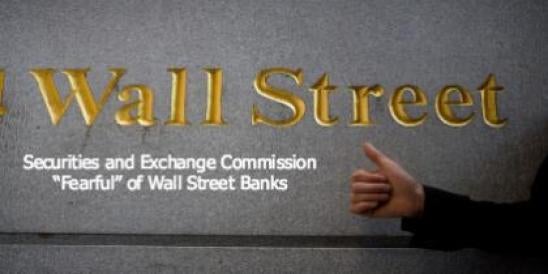Following the financial crisis, the U.S. Securities and Exchange Commission has received sharp criticism from the public for its seemingly weak enforcement of Wall Street’s too big to fail banks. Surprisingly, this sentiment was recently echoed from within the SEC. James A. Kidney, a retiring SEC trial attorney, no longer muffled by his employment with the agency, blasted his supervisors during a retirement speech on March 27 for being too “tentative and fearful” in their enforcement of Wall Street banks and instead “picking on the little guys.” This is particularly troubling because we know from recent experience that megabanks are the biggest risk takers.
Kidney, who had been with the SEC since 1986, pursued securities fraud suits against Goldman Sachs & Co. during his tenure. According to unconfirmed reports from the New York Times’ DealBook, Kidney blamed the commission’s “revolving door” for the lack of meaningful actions against big banks for their behavior. “It is no surprise that we lose our best and brightest as they see no place to go in the agency and eventually decide they are just going to get their own ticket to a law firm or corporate job punched,” Kidney reportedly grieved. Despite higher-ups apparently believing in the SEC’s mission “to protect investors and to maintain fair, honest and efficient markets,” they fail to follow through.

The former trial lawyer implied that the SEC “polices the broken windows on the street level and rarely goes to the penthouse floors.” Even on the rare occasions when enforcement does go to the penthouse, “good manners are paramount,” according to reports of Kidney’s remarks. Tough enforcement against big banks is plagued by “extensive negotiation and weakening.”
Efforts to Curb Negative Perception
In response to criticism, the SEC has typically cited to the record number of cases filed in the aftermath of the financial crisis as evidence of taking a hard line with Wall Street. We also recently commented on the SEC’s efforts to curb its negative perception by demanding more public accountability this year from wrongdoers in financial markets by revamping the SEC’s controversial no-admit, no-deny policy to require admissions of guilt in settlements with wrongdoers in the securities markets. However, the deterrent effect, if any, of the new change has yet to be seen.
Quantity over Quality
Among Kidney’s chief gripes with the SEC’s current policies is that it wrongly values the quantity, not the quality of the lawsuits it brings. Specifically, he criticized expensive and time-consuming actions against defendants who pose minimal or no harm to the public or financial markets. An example of these ineffective efforts is the SEC’s prosecution of defendants in China, India and other countries, in lieu of focusing on violations within the U.S.
Ultimately, the fact that Kidney’s speech drew applause from the crowd of about 70 is telling of the substantial need for reform. We are cautiously optimistic that Kidney’s remarks will cause enough of a stir in Washington to result in meaningful reforms to the SEC’s priorities and policies.




 i
i

